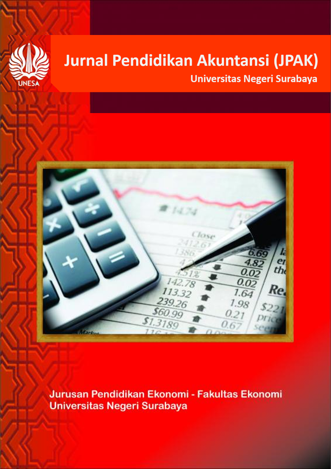Pengaruh Pemahaman Siklus Akuntansi, Computer Attitude, Intensitas Latihan Soal dan E-Learning terhadap Hasil Belajar Komputer Akuntansi
DOI:
https://doi.org/10.26740/jpak.v9n1.p104-115Keywords:
Computer attitude; e-learning; learning outcomes; intensity of question practice; understanding of the accounting cycleAbstract
The research objective was to prove the effect of understanding the accounting cycle, computer attitude, question practice intensity and e-learning simultaneously (together) or partially (alone) on the learning outcomes of accounting computer learning. This type of research is a quantitative research. The analysis technique used multiple linear regression test assisted by the SPSS 25 application program. The research sample consisted of 125 students from class XI AKL SMK Negeri 1 Pati, which was taken randomly based on the proportional random sampling method and using the calculation of the Slovin formula. Data collection techniques are using tests, questionnaires and documentation. The results of the study proved that the understanding of the accounting cycle, computer attitude, question training intensity and e-learning influenced the learning outcomes of class XI AKL SMK Negeri 1 Pati. Acquisition of t test results prove that each variable, namely the understanding of the accounting cycle, computer attitude, the intensity of question exercises and e-learning partially affect the learning outcomes of accounting computer. Based on the research results, it is hoped that further researchers can develop this research, by expanding the scope of the research sample and adding variables that are thought to affect the learning outcomes of accounting computers such as learning styles, learning discipline, English language skills and computer mastery.
Downloads
Downloads
Published
How to Cite
Issue
Section
License
Authors who publish with this journal agree to the following terms:
- Authors retain copyright and grant the journal right of first publication with the work simultaneously licensed under a Creative Commons Attribution License that allows others to share the work with an acknowledgement of the work's authorship and initial publication in this journal.
- Authors are able to enter into separate, additional contractual arrangements for the non-exclusive distribution of the journal's published version of the work (e.g., post it to an institutional repository or publish it in a book), with an acknowledgement of its initial publication in this journal.
- Authors are permitted and encouraged to post their work online (e.g., in institutional repositories or on their website) prior to and during the submission process, as it can lead to productive exchanges, as well as earlier and greater citation of published work (See The Effect of Open Access).

Jurnal Pendidikan Akuntansi (JPAK) is licensed under a Creative Commons Attribution-NonCommercial 4.0 International License.
 Abstract views: 2196
,
Abstract views: 2196
, PDF Downloads: 1545
PDF Downloads: 1545



